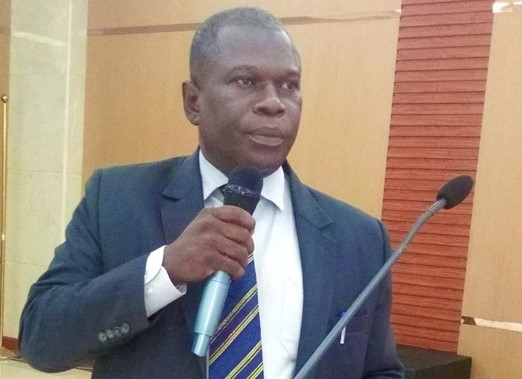
The Chief of Staff of the Armed Forces of Liberia, Major/General Prince C. Johnson, III, says a robust partnership of world actors is needed to mitigate the challenges faced with combating maritime crimes in the Gulf of Guinea.
Major/General Johnson said collaborating effort between Liberia and all international partners is required in addressing the increasing wave of maritime crimes in the Gulf of Guinea.
Speaking Monday at the start of a two-day consultative dialogue meeting on the theme, “Combating Maritime Crimes in the Gulf of Guinea; Challenges and Prospects”, the AFL Chief of Staff said only with coordinated partnership can countries in the region adequately address the maritime threat.
He pledged Liberia’s commitment to supporting efforts by world and regional leaders in combating the many crimes that undermine maritime governance in the Gulf of Guinea.
The two-day consultative dialogue meeting opened in Liberia with calls for stronger international action plans to halt the increasing wave of maritime crimes in the Gulf of Guinea.
The dialogue, which brings together eighteen stakeholders from Ghana, Liberia, Sierra Leone, Togo and Nigeria, is organized by the Kofi Annan International Peacekeeping Training Center (KAIPTC), with support from the Japanese government, through the UNDP.
According to Major/General Francis Ofori, the Commandant of the Kofi Annan International Peacekeeping Training Center (KAIPTC), participants will deliberate and highlight the challenges of maritime security actors in combating maritime crimes, and discuss a way forward in bridging the gaps.
Major/General Ofori added that the project is aimed at promoting effective implementation of relevant regional and international maritime protocols to control maritime crimes in the Gulf of Guinea.
The Gulf of Guinea, which serves as a strategic route for regional and international commerce and has contributed in facilitating the growth of the blue economies globally, has in recent time garnered the ill-repute of being a focal point for maritime crime.
Piracy in the Gulf of Guinea appears to be worse than ever, judging by recent headlines, but experts believe that these accounts and the data they rely on must be approached with caution. Figures on piracy and armed robbery at sea are susceptible to under-reporting and problems of definition, and critics think that over-hasty responses could lead to narrow solutions that fail to solve the underlying causes of maritime insecurity.
A snapshot of piracy in the region shows a relatively consistent number of reported incidents. According to the International Maritime Bureau (IMB), attacks were documented in 15 Gulf of Guinea littoral states over the past three years.
The IMB’s Piracy Reporting Centre recorded 84 attempted and successful attacks in 2020, up from the 64 in 2019, but almost the same as 2018, at 82 incidents. Most assaults targeted the crew to kidnap them for ransom. The region is now the site of over 90% of the world’s reported kidnappings at sea.
Piracy data is often used as an indicator of general maritime security in the Gulf of Guinea, and experts have said that unless it is carefully interpreted using it could lead to poor responses. Changing piracy trends could be the result of different levels of maritime awareness and capability among countries, which in turn affects the reporting of incidents.
Reports from the IMB as well as other sources, such as the Interregional Coordination Centre in Yaoundé, greatly influence public and policy discourse on the state of maritime security in West and Central Africa. Yet the extent of the threat is disputed and the numbers need to be carefully examined to avoid gaps and pitfalls.
For instance, the Nigerian Navy reports 339 incidents of piracy in 2020. But according to the definition of the crime under international law, 214 out of these would not be considered “piracy” but acts of armed robbery, as they took place in Nigerian territorial waters and not on the high seas.
Incidents of armed robbery at sea are the responsibility of the coastal state if they occur fewer than 12 nautical miles from the coast. The location of attacks is therefore significant, both to interpreting the data and crafting responses.






